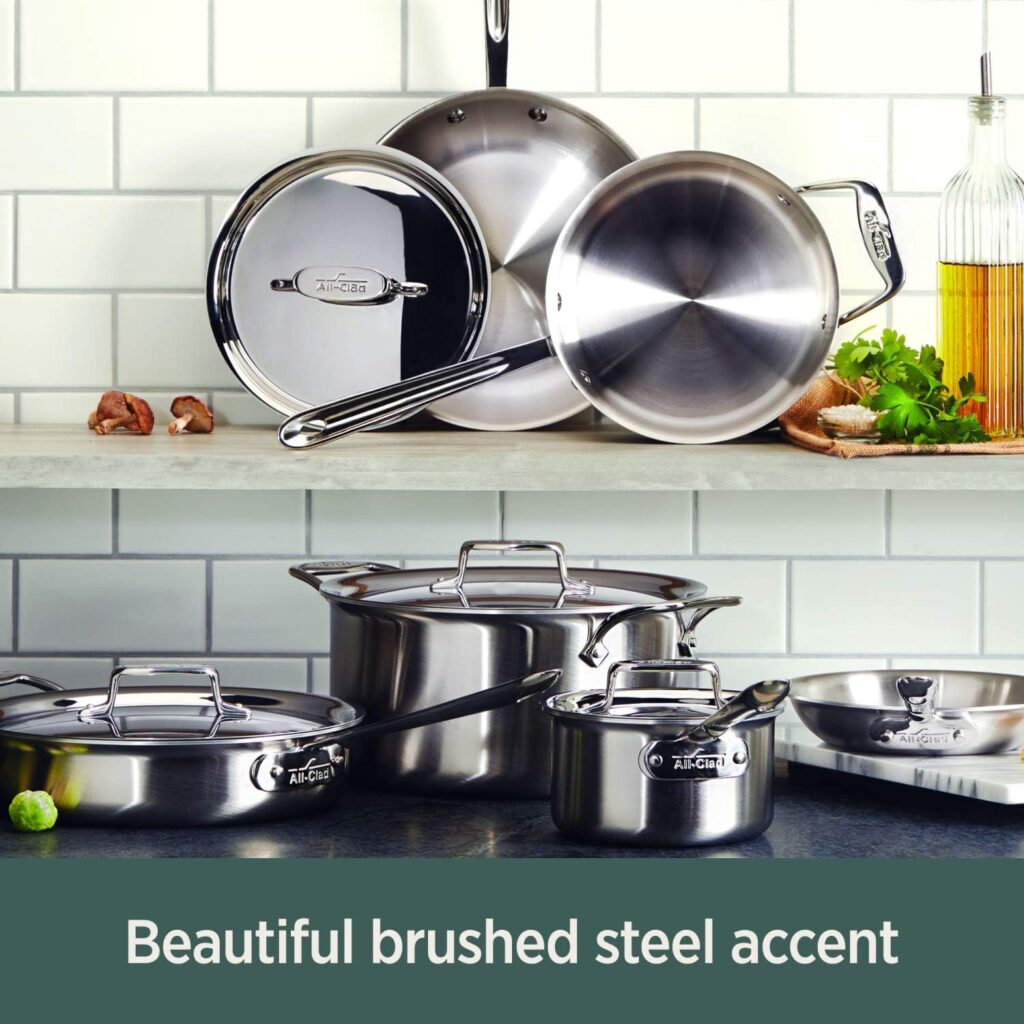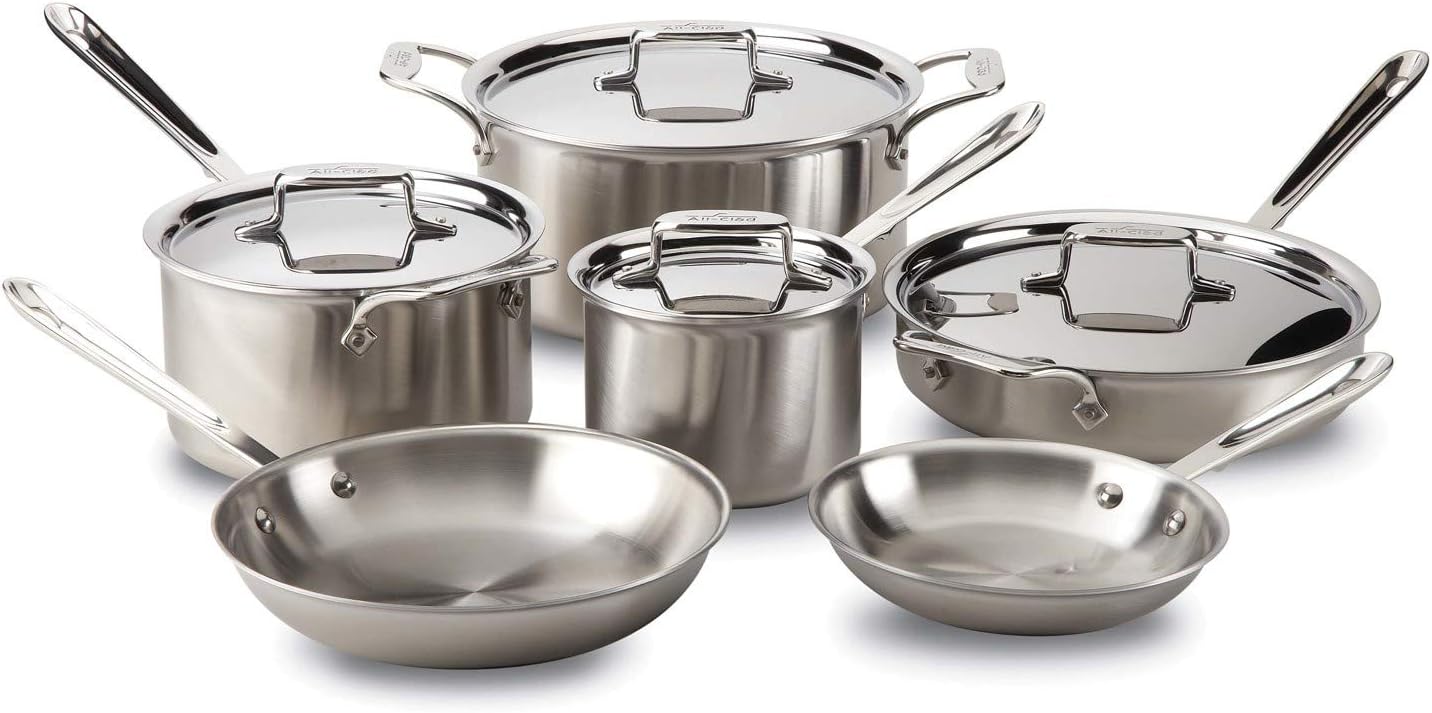Are you a proud owner of Calphalon cookware or considering investing in this popular brand? If so, it’s essential to know how to properly care for and maintain your Calphalon pots and pans to ensure their longevity and optimal performance.
From cleaning tips to understanding their materials and compatibility with various cooktops, this comprehensive article will answer all your burning questions about Calphalon cookware care. Discover the best practices for cleaning, seasoning, and storing your Calphalon cookware, as well as tips for preventing damage and maintaining its non-stick properties. Dive into this article to become a pro at caring for your Calphalon cookware!

This image is the property of images.pexels.com.
Calphalon Cookware Care
What is Calphalon cookware?
Calphalon cookware is a popular brand of high-quality kitchenware that offers a range of pots, pans, and other cooking essentials. Known for its durability and performance, Calphalon cookware is a favorite among home cooks and professional chefs alike.
Is Calphalon cookware safe to use?
Yes, Calphalon cookware is safe to use. It is made from materials that are known to be safe for cooking, such as hard-anodized aluminum and stainless steel. Additionally, Calphalon uses a non-toxic, PFOA-free non-stick coating on some of its cookware, ensuring that your food remains free from harmful chemicals.
How is Calphalon different from other cookware brands?
Calphalon sets itself apart from other cookware brands through its commitment to quality, innovation, and performance. Its products are designed with precision and attention to detail, resulting in cookware that heats evenly, cooks food thoroughly, and lasts for years. Calphalon also offers a wide range of cookware collections, allowing you to choose the set that best suits your cooking style and needs.
Calphalon cookware 10-Piece Cookware review
What materials are Calphalon pots and pans made from?
Calphalon pots and pans are primarily made from hard-anodized aluminum, stainless steel, or cast iron. Each material has its own unique properties and benefits.
Hard-anodized aluminum provides excellent heat distribution and is highly durable. Stainless steel is known for its durability and resistance to rust and staining. Cast iron is a heavyweight material that retains heat well and is perfect for slow cooking and searing.
Is Calphalon non-stick?
Yes, Calphalon offers non-stick cookware options. The non-stick coating used on Calphalon pans is designed to provide easy food release and effortless cleanup. It allows you to cook with less oil or butter, making your meals healthier. However, it is important to follow the care instructions to ensure the longevity of the non-stick coating.
Calphalon cookware 10-Piece Cookware review
Cleaning Calphalon Non-Stick Cookware
How do I clean Calphalon non-stick cookware?
Cleaning Calphalon non-stick cookware is quick and easy. After each use, allow the pan to cool completely before washing it with warm, soapy water and a sponge or soft cloth.
Avoid using abrasive cleaners or scrubbing pads, as they can damage the non-stick surface. If there are stubborn stains or food residue, you can soak the pan in warm, soapy water before gently scrubbing it.
Can I use metal utensils with Calphalon non-stick cookware?
It is recommended to use non-metal utensils, such as silicone or wooden utensils, with Calphalon non-stick cookware to avoid scratching the non-stick surface. Metal utensils can damage the coating and reduce its lifespan. If you must use metal utensils, be gentle and avoid scraping or cutting directly on the non-stick surface.
Can I use abrasive cleaners on my Calphalon cookware?
No, abrasive cleaners should not be used on Calphalon cookware. These cleaners can scratch the surface of the pans and pots, damaging the non-stick coating or the appearance of stainless steel. Instead, use a mild dish soap and a soft sponge or cloth to clean your Calphalon cookware.
How do I remove stains from my Calphalon pots and pans?
To remove stains from your Calphalon pots and pans, try soaking them in warm, soapy water. If the stains persist, you can make a paste of baking soda and water and apply it to the stained areas. Let it sit for a few minutes before gently scrubbing it with a non-abrasive sponge or cloth. Rinse thoroughly and dry completely.
What should I do if the non-stick coating on my Calphalon cookware starts to peel?
If the non-stick coating on your Calphalon cookware starts to peel, it is time to replace the cookware. Continued use of cookware with peeling non-stick coating is not recommended, as it can lead to the ingestion of the coating and potentially harm your health.
It is important to follow the manufacturer’s instructions for the proper care and use of your cookware to prevent premature peeling.
Can I use oil and butter with Calphalon non-stick pans?
Yes, you can use oil and butter with Calphalon non-stick pans. While the non-stick coating helps reduce the amount of oil or butter needed for cooking, adding a small amount can enhance the flavor and prevent sticking. Be mindful of the cooking temperature and avoid using excessively high heat, as it can degrade the non-stick coating.
How can I restore the non-stick properties of my Calphalon pans?
You cannot restore the non-stick properties of your Calphalon pans once they have worn off or become damaged. However, proper care and use can help prolong the life of the non-stick coating. Avoid using metal utensils, abrasive cleaners, or high heat, as they can cause damage. Also, ensure that the pans are cleaned and stored properly to prevent unnecessary wear.
Calphalon cookware 10-Piece Cookware review
Can I use cooking sprays on Calphalon non-stick pans?
While it is technically possible to use cooking sprays on Calphalon non-stick pans, it is not recommended. Cooking sprays can leave a residue on the non-stick surface that can build up over time and affect the performance of the pan. If you choose to use a cooking spray, use it sparingly and wipe away any excess to prevent buildup.
How do I avoid scratching the non-stick surface of my Calphalon pans?
To avoid scratching the non-stick surface of your Calphalon pans, it is important to use non-metal utensils, such as silicone or wooden utensils. Avoid using metal utensils like spatulas or forks that can scratch the surface. Additionally, avoid using abrasive cleaning tools or harsh scrubbing pads, as they can damage the non-stick coating.
What is the best way to deep clean Calphalon cookware?
For deep cleaning Calphalon cookware, start by filling the pot or pan with warm water and adding a small amount of dish soap. Bring the water to a gentle boil and let it simmer for about 15 minutes. This will help loosen any stuck-on food or stains.
After simmering, remove the cookware from heat and allow it to cool before washing it with warm, soapy water and a sponge or cloth. Rinse thoroughly and dry completely before storing.![]()
Happy Cooking!


